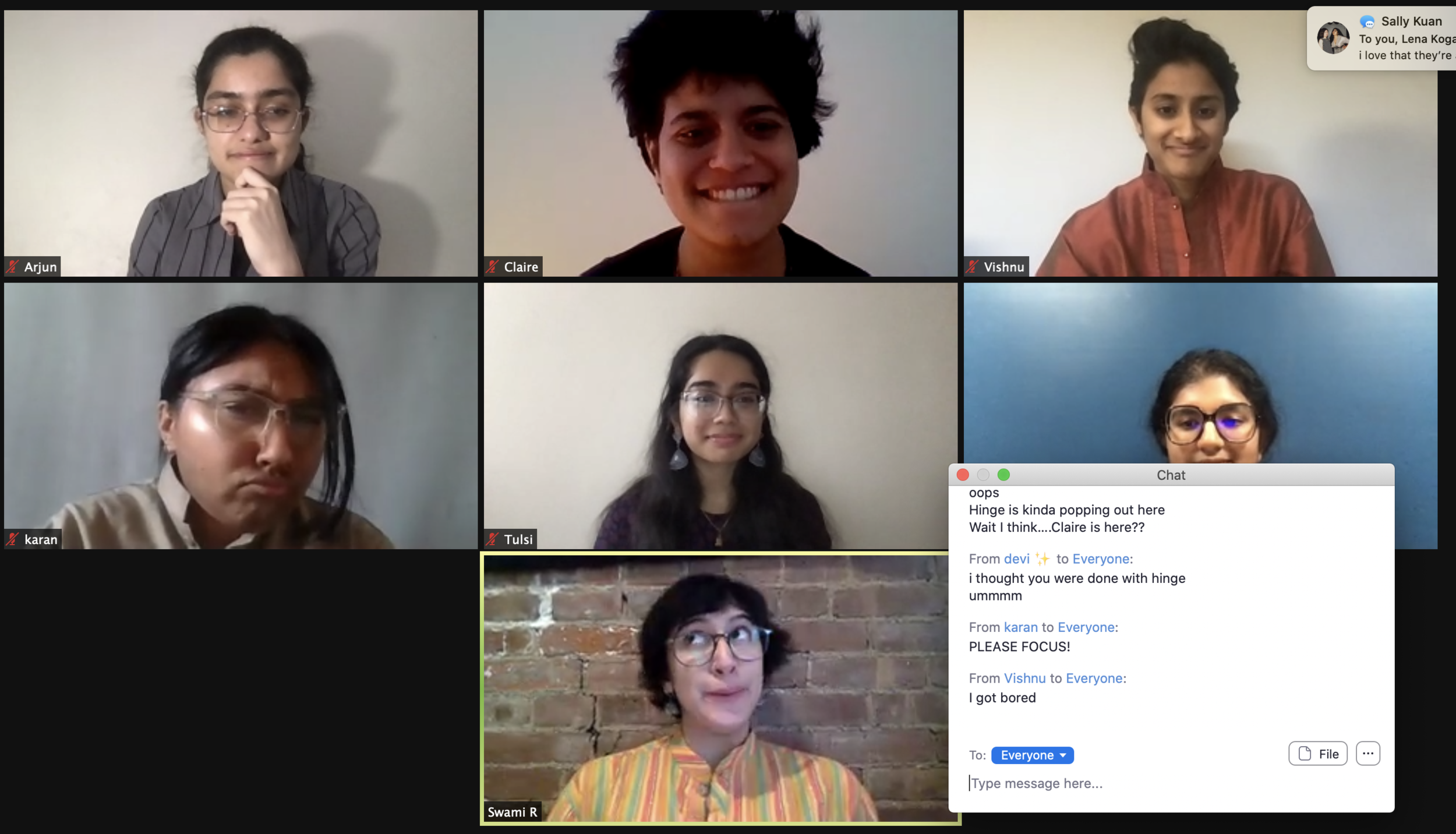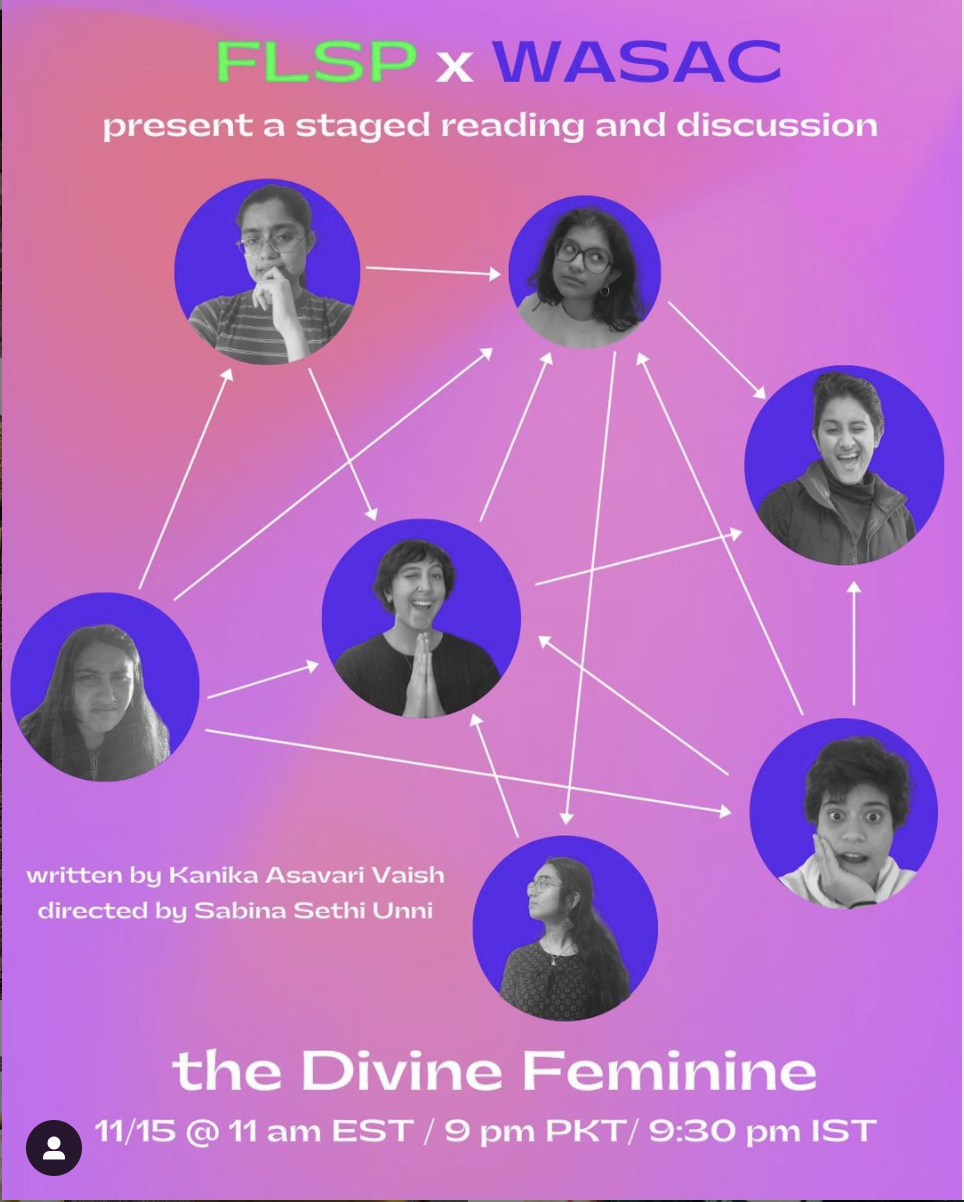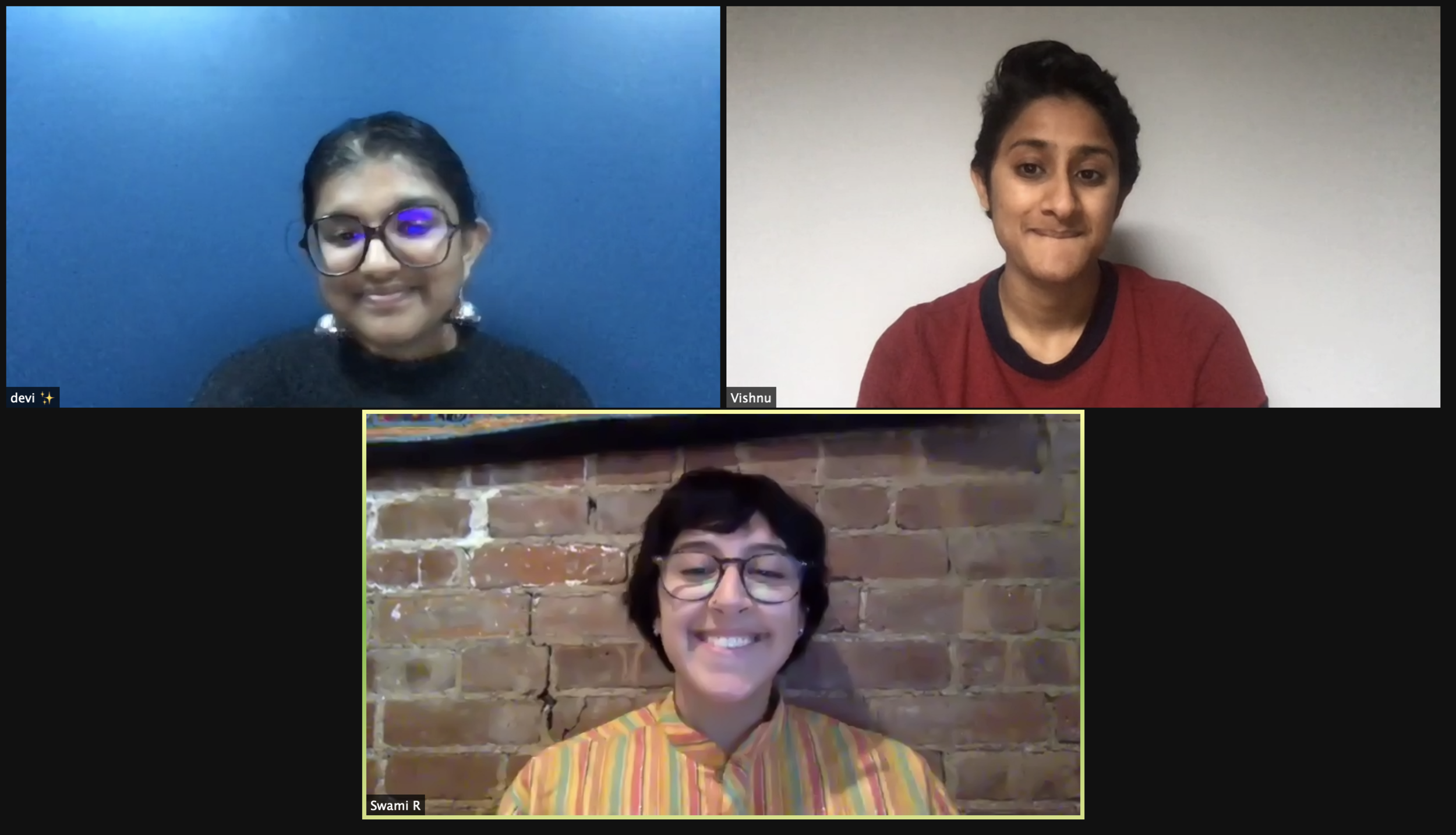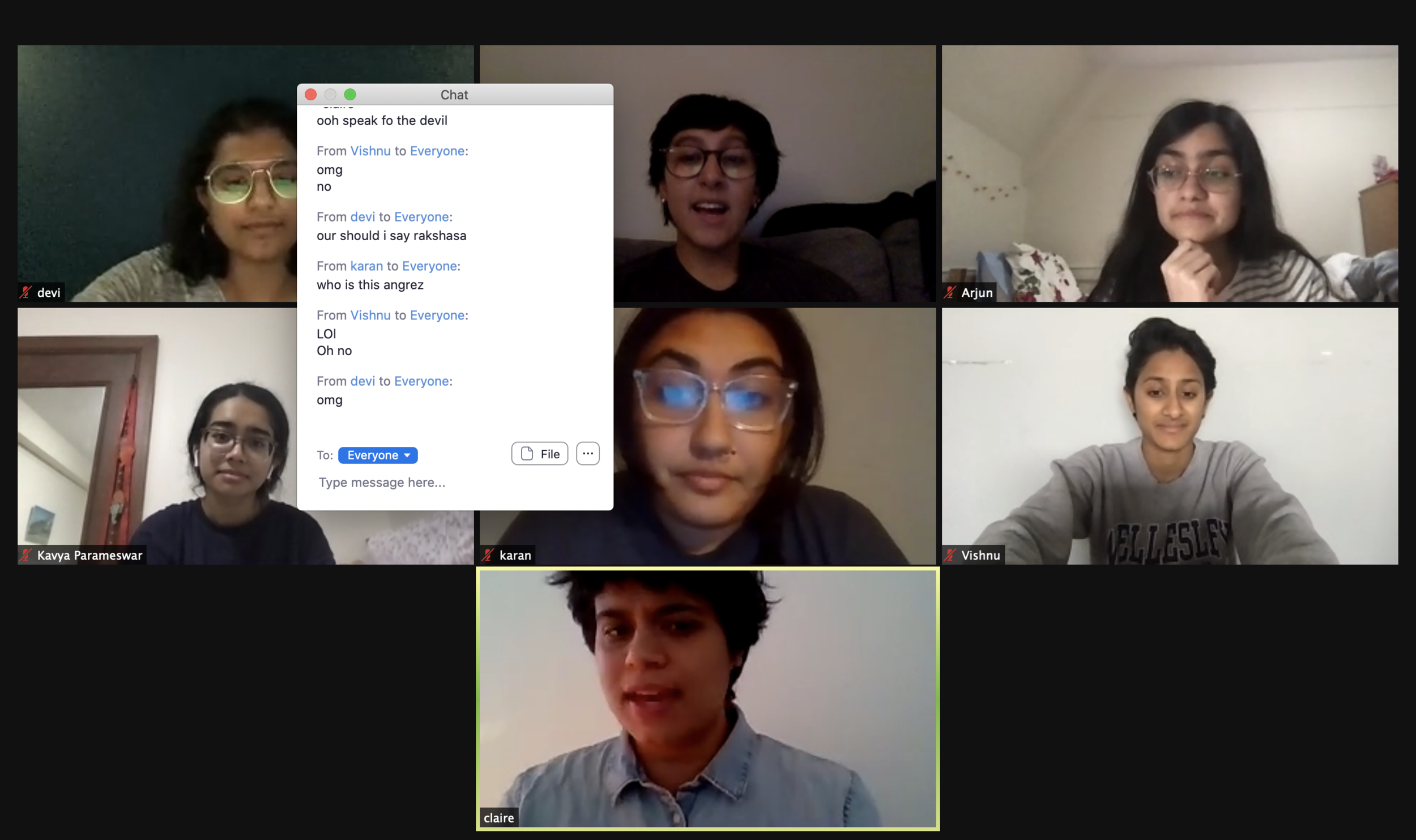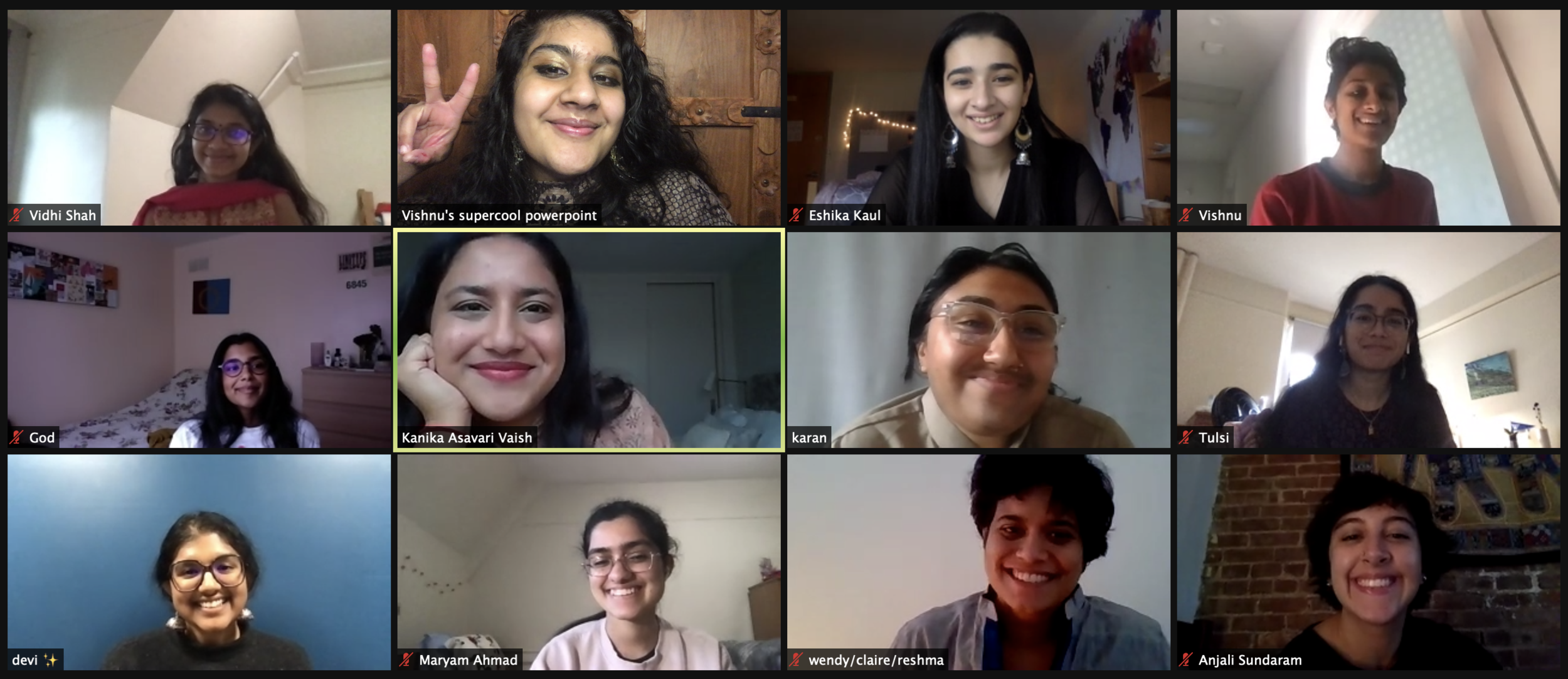Wait… I should do this play again outside of a Zoom context lowkey.
I directed “Divine Feminine,” by Kanika Vaish, for a collaborative event with Fresh Lime Soda and the South Asian student group at my alma mater, Wellesley College.
If you can’t tell , I’m a really big fan of the leftist theatermaker Safdar Hashmi, who believed that theater is not just about creating and nourishing a revolutionary spirit, but also about providing ourselves with cultural and analytic frameworks for critically interrogating art and society. Thus, equally part of our performances are the discussions that we host afterwards, where audience members and artists engage in critical response practice, or ask if the performance was actually a feminist reimagining, or question if the Zoom chat is really necessary (yes, and it’s the most exciting participatory space I could possibly imagine).
There’s a lot of different approaches to political education. This play was our take on what problematizing Diwali (or Hinduism, or even more broadly, rituals and religion) might look like - open, comedic, difficult, non-pedantic, and gentle. I hope I’m not coming off as sanctimonious (although I’m sure that any writing on this website probably comes off as really sanctimonious) but, in conversations with my extended family, I’ve found that there’s a value in approaching political education in an inviting and fun and maybe non-antagonistic way. There’s value in a passionately scathing and uncompromising Instagram posts (which I also love to make all the time), but there’s also value in less glamorous and less gratifying and less totalizing but perhaps more meaningful and subtle conversations with family.
I included all of my favorite elements of live theater - maximalist disco interludes, dorky powerpoint presentations, original and live Carnatic music, actors using the Zoom chat in character (multi-media AND multi-modal), and lovely critical disagreements afterwards.


